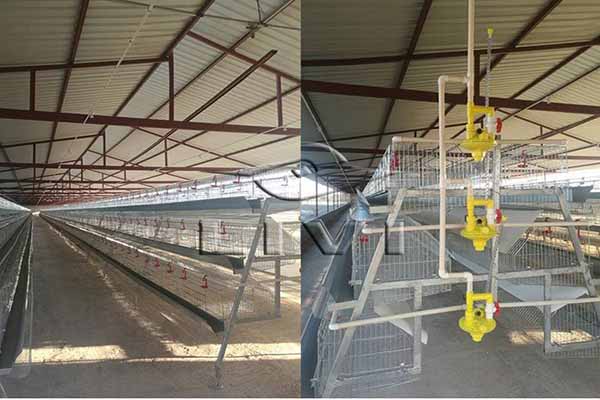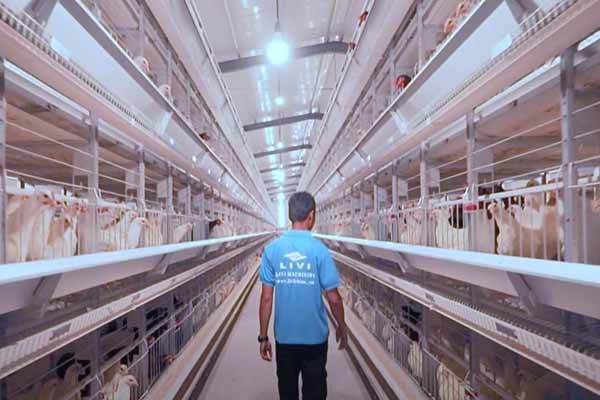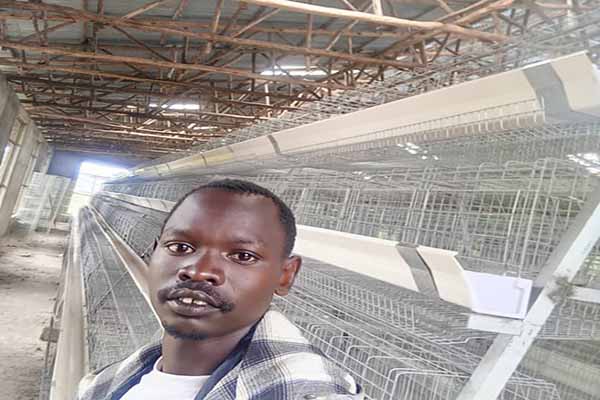Successful Poultry Farm Setup Tips for Optimal Productivity
Time : 2025-06-25
Starting a successful poultry farm is a multifaceted endeavor that requires careful planning, expert knowledge, and a passion for the industry. The success of a poultry farm hinges on several factors, including the choice of the right location, appropriate housing, feed, and health management systems. This article aims to provide comprehensive and actionable tips to help you establish a thriving poultry farm. Let’s delve into the essential elements of a successful poultry farm setup.
Location, Location, Location
The first and most crucial aspect of setting up a poultry farm is choosing the right location. Here are a few factors to consider:

- Climate: Opt for a location with a favorable climate for poultry farming. Avoid extreme temperatures, high humidity, or excessive rainfall, as these can adversely affect the health and productivity of the birds.
- Availability of Water: Ensure the availability of clean, fresh water for the birds. Water is vital for their survival, and access to a reliable water source is a must.
- Accessibility: A location with easy access to transportation networks can help in transporting feed, equipment, and poultry to and from the farm efficiently.
- Land Availability: Choose a site with enough space to accommodate the expected number of birds and provide them with the necessary space for movement and ventilation.
Building and Housing Design
The design of the poultry houses is crucial for the health, comfort, and productivity of the birds. Here are some essential aspects to consider:
- Size and Shape: The size and shape of the poultry house should be based on the expected number of birds and the available space. It should be spacious enough to ensure adequate ventilation and easy management.
- Construction Materials: Use high-quality, durable materials that provide insulation, protect against predators, and withstand harsh weather conditions.
- Ventilation: Proper ventilation is essential for maintaining optimal air quality and temperature within the poultry house. Include ventilation fans, roof vents, and adjustable curtains to regulate airflow.
- Lighting: Ensure the poultry house is well-lit with natural light, as this can affect the birds’ growth and productivity. Install appropriate lighting systems to maintain the correct photoperiod for the species being raised.
- Feeding and Drinking Facilities: Provide easy access to feeders and waterers, ensuring that all birds can access them comfortably.
- Nesting Boxes: Include nesting boxes for laying hens to provide a comfortable environment for egg-laying and protect the eggs from predators.
Feed and Nutrition
The right nutrition is critical for the growth, development, and overall health of the birds. Here are some tips for selecting and preparing the best feed for your poultry:
- High-Quality Feed: Invest in high-quality feed from a reputable supplier that meets the nutritional requirements of your specific species.
- Balance: Ensure the feed is well-balanced, containing the right proportion of proteins, carbohydrates, fats, vitamins, and minerals.
- Storage: Store feed in a cool, dry, and rodent-proof location to maintain its quality and prevent spoilage.
- Free-Range Options: Consider offering free-range options, such as grass and insects, to provide a more natural diet for your birds and enhance their overall health and flavor.
Health and Disease Management
Poultry health is a critical component of a successful farm. Here are some essential health and disease management tips:
- Biosecurity: Implement strict biosecurity measures to prevent the introduction of diseases into the flock. This includes wearing boots and jackets, disinfecting vehicles, and maintaining clean and sanitized facilities.
- Regular Health Checks: Conduct regular health checks and monitor the birds for any signs of illness or stress. Early detection and treatment of diseases can prevent widespread outbreaks and reduce mortality.
- Vaccination Program: Establish a vaccination program tailored to the specific diseases prevalent in your area and the species being raised.
- Staff Training: Train your staff in proper poultry health and biosecurity measures to ensure the farm’s long-term success.
Water Quality
Access to clean, fresh water is essential for the health and productivity of poultry. Here are some tips for maintaining water quality:
- Regular Testing: Test the water quality regularly for contaminants and ensure it meets the necessary standards for poultry.
- Water Filters: Install water filters to remove impurities and maintain clean water.
- Disinfection: Disinfect waterers and water lines regularly to prevent the buildup of pathogens.
Marketing and Sales
Once your poultry farm is operational, it’s essential to establish a solid marketing and sales strategy to maximize profits. Here are some tips:

- Target Market: Identify your target market, whether it be local restaurants, supermarkets, or processors, and tailor your marketing efforts accordingly.
- Branding: Develop a strong brand identity and promote your products effectively.
- Certifications: Obtain certifications for your farm, such as organic or free-range, to differentiate your products and attract consumers.
- Networking: Build relationships with potential customers and suppliers to facilitate sales and establish a reliable supply chain.
Setting up a successful poultry farm requires careful planning, dedication, and expertise. By following these tips and incorporating professional home equipment knowledge, you c an create a thriving poultry operation that provides a valuable source of income and contributes to the global food supply.
an create a thriving poultry operation that provides a valuable source of income and contributes to the global food supply.











